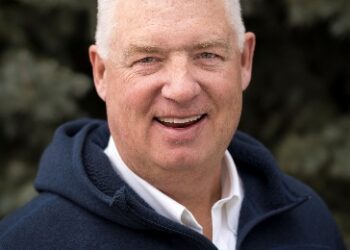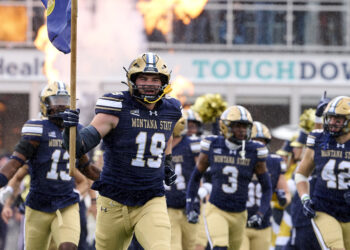By Michael Becker MSU News Service
BOZEMAN – A Montana State University graduate in history has earned a prestigious postdoctoral fellowship to research environmental topics at the Harvard University Center for the Environment.
Daniel Zizzamia, who earned his doctorate in history from MSU’s College of Letters and Science last year, will be one of just a half-dozen scholars to join Harvard’s Environmental Fellows Program this fall. And one of the program’s few historians.
The two-year program invites recent doctoral graduates to Cambridge, Mass., to use Harvard’s resources to take on complex environmental issues.
“It’s an amazing opportunity, and I’m really excited about it,” said Zizzamia, who graduated from MSU’s Department of History, Philosophy and Religious Studies.
Zizzamia studies environmental history, specifically that of the American West and how coal and fossil deposits have driven the civilization and identities of people west of the Mississippi.
Originally intending to study energy history on a more international scale when he came to MSU seven years ago, Zizzamia found himself instead wrapped up in western survey reports from the late 1800s and early 1900s.
Geologists and paleontologists of the time had discovered that during the Cretaceous Period, about 145 million to 65 million years ago, the middle of North America had been covered in a broad, shallow sea and had a tropical climate. Zizzamia was fascinated by the reports’ oddly florid descriptions of the ancient seaway.
“The West had been considered a great American desert for so long,” a barrier to civilization, he said. “Now there was an opening, hope that the area was not what people had seen, but that it had some virtues.”
Boosters, scientists, the railroads and more used those promising descriptions to overcome Americans’ perception of the arid West, creating the image of a land ripe for settlement and exploitation.
A corresponding growth in industrialization – driven by coal – helped spur Americans’ dream of creating a lush, rich West, he said.
“There’s a natural malleability to the West,” Zizzamia said. “There was a lot of effort put into making the area what Americans wanted it to be.”
And coal played an important role.
“The settling of the American West would have been vastly different if not for the coal,” he said. “It became very much a part of American identity, the presumed abundance – the American nation has really been built on abundance.”
Zizzamia, 32, started his college career in his home state studying chemistry, biology and botany at the University of Connecticut, but found “something about the human condition that pulled me in a different direction,” he said.
After shifting gears and earning his master’s in history at Connecticut, he took some time off to work in information technology but after a year found that academia was calling him back.
So, like the settlers he would later come to study, he looked west to Montana State University and joined its relatively young doctoral program in history, where he studied under – and taught with – professors like Tim LeCain, Michael Reidy and Brett Walker, who came to know him as a passionate educator and researcher dedicated to social justice and environmental sustainability.
“Dan cares about changing the world through his work,” wrote Reidy, who co-chaired Zizzamia’s dissertation committee. “He writes that way, participates in seminars that way, teaches courses that way, worries about the future that way.”
LeCain, Zizzamia’s other dissertation co-chair, and Susan Cohen, the department chair, said Zizzamia’s fellowship at Harvard is a powerful endorsement of the history department and its graduate program. His other dissertation committee members were professors Robert Rydell, Mark Fiege and Walker.
“This is hugely prestigious,” LeCain said. “If you look at all the other environmental fellows he’ll be joining, every single one of them is from an Ivy League school. So what this says is that what Daniel and the department of history are doing here at Montana State is on par with anything happening at Yale or Princeton.”
Zizzamia hopes to use his two years at Harvard to transform his doctoral dissertation into a book. He said his ideas have repercussions outside of history, as America ponders new challenges.
“It has to do with how we understand geo-engineering, future energy and climate policy, how we understand baselines,” he said. “Our discussions of colonizing Mars have been very similar to discussions of the American West.”
Zizzamia said he and his family will leave Bozeman for Harvard over the summer to take up his fellowship. Despite bidding farewell to MSU, Zizzamia emphasized it was the faculty and opportunities here that let him blossom academically.
“The virtue of the scholars here has engendered a lot of success,” Zizzamia said. “It’s what makes this place unique. This history department has names in it that are forces in the field.”












